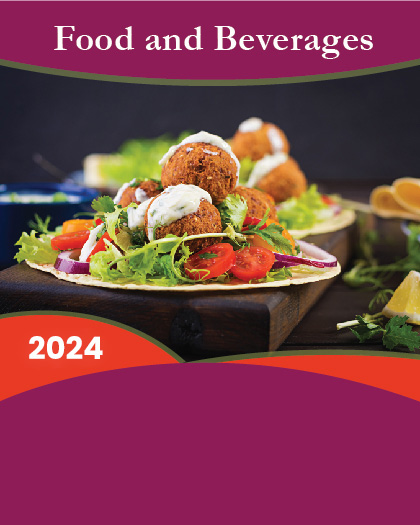
Global Fast Food Market is valued at approximately USD 1094 billion in 2023 and is anticipated to grow with a healthy growth rate of more than 6.1% over the forecast period 2024-2032. The fast food category includes products intentionally prepared for quick serving to save time. The types of fast food and the ingredients used vary from country to country. The fast pace of life, rapidly changing work life, and evolving eating habits and tastes of a new generation are some of the factors supporting the growth of the fast food market. Additionally, the increasing number of food chain stores around the globe is a key factor expected to positively influence the market growth over the forecast period.
The demand for convenience foods, on-the-go snacks, ready meals, and cold cuts is steadily expanding, primarily driven by the hectic lifestyles of millennials and the expanding global working population. This shift in consumer behavior is significantly contributing to the growth of the fast food industry worldwide. The rising trend of dining out, particularly among dual-income households, coupled with the proliferation of food service outlets, is also fueling market expansion. The rapid urbanization and increasing disposable incomes, especially in developing regions, further bolster this growth. However, the market faced a substantial setback during the COVID-19 pandemic due to lockdown restrictions that severely impacted the food service industry. With full-service restaurants, quick service restaurants (QSRs), and pubs closed for on-premise services, the fast food sector witnessed a significant decline in sales during the first and second quarters of 2020. Despite the challenges, the market began to recover towards the end of 2021, driven by the surge in online food delivery services, which became a lifeline for many businesses during the pandemic. The convenience of ordering food online and the increasing penetration of e-commerce platforms are expected to continue driving market growth in the coming years.
The key regions considered for the Global Fast Food Market study include Asia Pacific, North America, Europe, Latin America, and Rest of the World. North America is a dominating region in the Global Fast Food Market in terms of revenue. The market growth in the region is being attributed to factors including the rise in dual-working households, higher household income levels, and the rapid expansion of fast food chains. The U.S. remains the largest market for fast food, with consumers frequently eating out. Whereas, the market in Asia Pacific is anticipated to grow at the fastest rate over the forecast period fueled by countries like Japan, India, and China, where the expansion of fast food chains and the increasing use of digital platforms for food delivery are driving the market.
Major market players included in this report are:
McDonald's (Minnesota, U.S.)
Burger King (Florida, U.S.)
Domino's (Michigan, U.S.)
Pizza Hut (Texas, U.S.)
Wendy's (Ohio, U.S.)
Papa John's International, Inc. (Kentucky, U.S.)
Little Caesars (Michigan, U.S.)
Chipotle Mexican Grill (California, U.S.)
Dunkin (Massachusetts, U.S.)
Wallace, Fujian Food Co., Ltd. (Fujian, China)
Yum! Brands (Kentucky, U.S.)
Subway (Connecticut, U.S.)
Starbucks (Washington, U.S.)
KFC (Kentucky, U.S.)
Taco Bell (California, U.S.)
The detailed segments and sub-segment of the market are explained below:
By Product Type
Burger & Sandwich
Pizza & Pastas
Asian & Latin American Food
Others
By Service Type
On-Premise
Delivery & Take Away
By Region:
North America
U.S.
Canada
Europe
UK
Germany
France
Spain
Italy
ROE
Asia Pacific
China
India
Japan
Australia
South Korea
RoAPAC
Latin America
Brazil
Mexico
RoLA
Middle East & Africa
Saudi Arabia
South Africa
RoMEA
Years considered for the study are as follows:
Historical year - 2022
Base year - 2023
Forecast period - 2024 to 2032
Key Takeaways:
Market Estimates & Forecast for 10 years from 2022 to 2032.
Annualized revenues and regional level analysis for each market segment.
Detailed analysis of geographical landscape with country-level analysis of major regions.
Competitive landscape with information on major players in the market.
Analysis of key business strategies and recommendations on future market approach.
Analysis of competitive structure of the market.
























